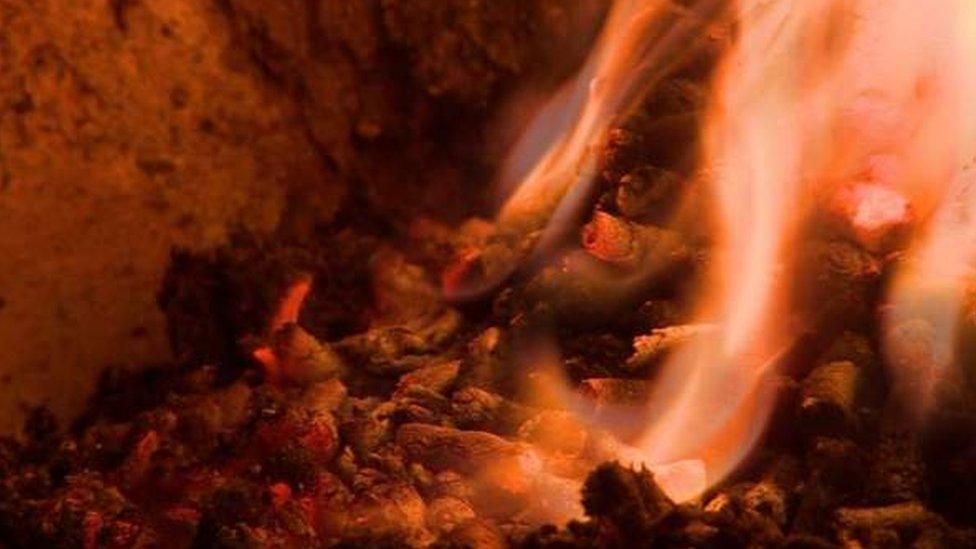RHI Inquiry: Cash-for-ash - the story so far
- Published

Hundreds of millions of pounds of public money could be wasted as a result of the RHI scheme
It is the scandal that sent Northern Ireland's devolved government up in flames and risked leaving the taxpayer half-a-billion pounds out of pocket.
Of all the things that have brought governments down through world history, a green energy scheme is surely one of the more unlikely causes.
But Northern Ireland has always done things differently.
The Renewable Heat Incentive debacle has exposed serious flaws in its civil service and governance systems.
A public inquiry into the scandal - known as RHI or cash-for-ash for short - opened in November 2017 and has so far clocked up more than 500 hours of evidence hearings.
Its perceived slow pace has drawn criticism from some quarters but the depth of the investigation goes some way to explaining why it is still rolling nearly 10 months after the first witness took the oath.
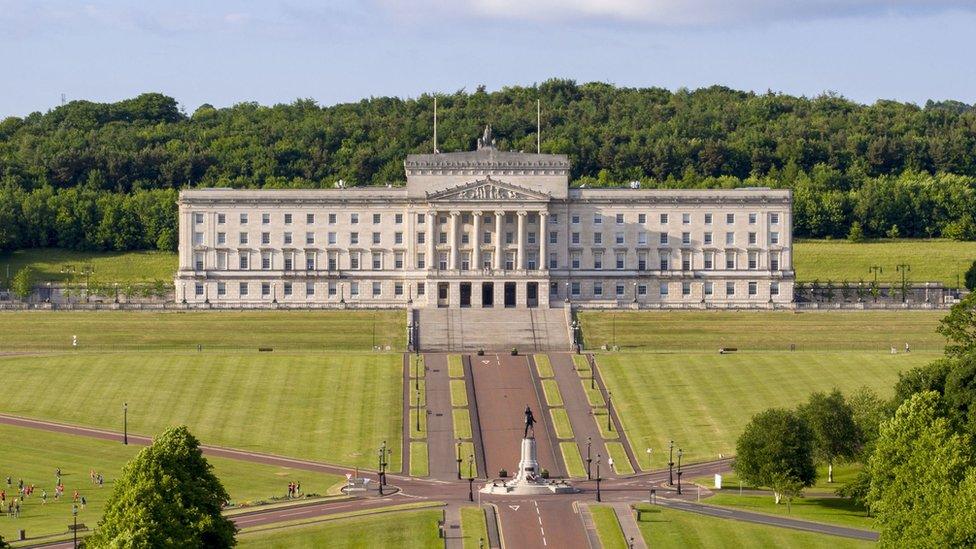
The inquiry has shone a light on the secretive side of how Stormont operated
Filing cabinets and hard drives in the inquiry's offices hold well beyond a million pages of evidence, each requiring careful legal examination.
That has come at a substantial price - in June Stormont's finance department revealed that the cost of the inquiry had risen by up to a third to a possible £6.7m.
During more than 80 days of hearings since last autumn, the public has been given an unprecedented insight into how Northern Ireland has been run by civil servants and politicians.
After a two-month summer break, the inquiry has resumed, entering a box-office spell, with numerous high-profile witnesses due to give their side of the story.
BBC News NI looks at some of the revelations that have emerged so far.

Arlene Foster 'would not have done things differently'
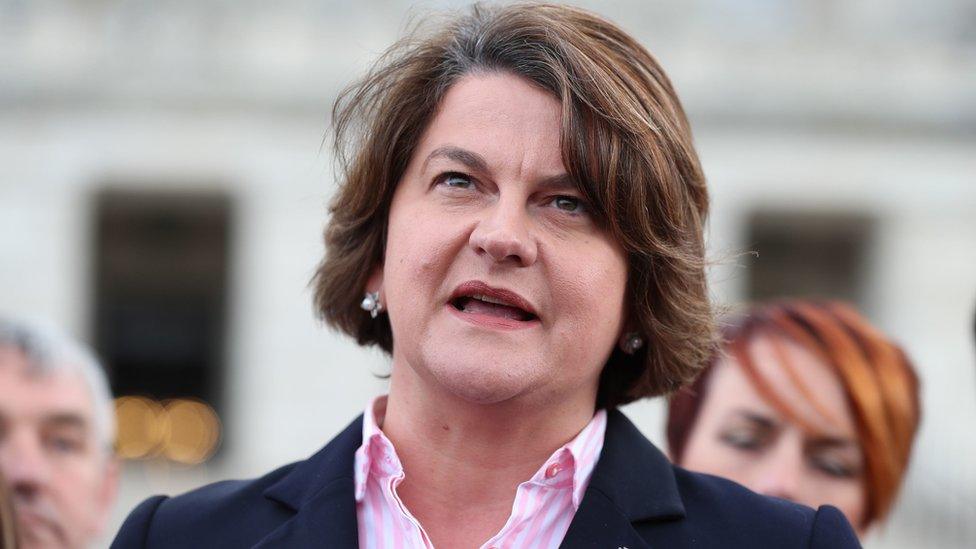
Arlene Foster said the debacle was a matter of "deep regret for me politically and personally"
The Democratic Unionist Party (DUP) leader Arlene Foster has been the central figure since the RHI affair entered the public's eyeline at the end of 2016.
She took the full force of the criticism when the vast projected overspend emerged - at one point it was put at £700m but retrospective cuts have since brought the budget largely back on track for now.
She was the minister in charge of Stormont's enterprise department when the scheme was set up and during its first two-and-a-half years of operation.
But when she appeared before the inquiry in April one of the first questions she was asked was whether or not she felt responsible for the disaster.
She was adamant in her belief that she had not done anything wrong and she repeated words to that effect throughout her four days of questioning.
Mrs Foster will be back in the witness chair in the coming weeks.

Just two civil servants worked on RHI - neither was an energy expert
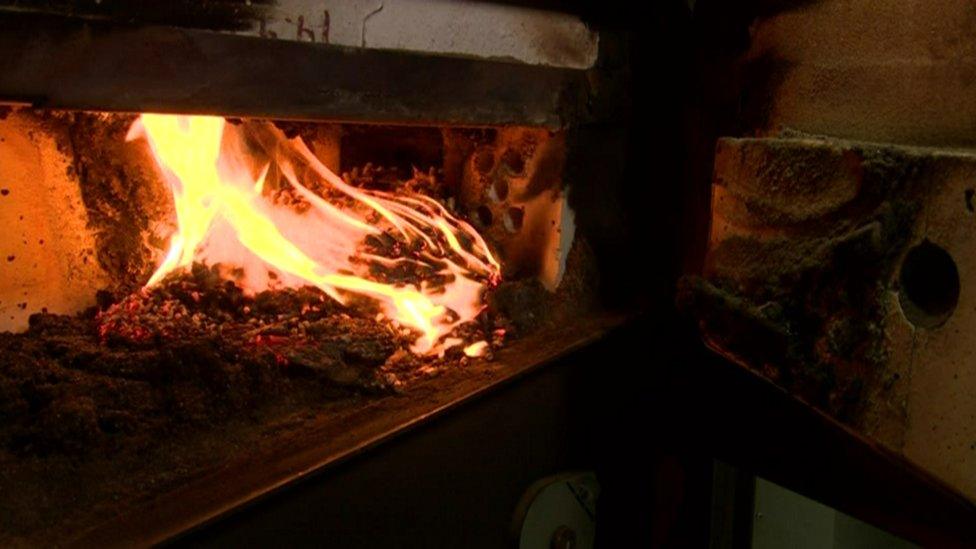
A lack of specialist knowledge within the civil service meant key details were misunderstood
One of the recurring themes of the inquiry, as mentioned by many witnesses, has been the distinct lack of resources - both staff and time - that were available when the scheme was being set up and run.
Two officials - one full-time, one-part-time - drew up the initiative and ran it for its first 18 months.
Compare that number with the team of 77 civil servants that worked on the near-identical RHI scheme in Britain.
Not only that but neither of the two staff in Belfast had a background in energy matters.
David Sterling, the head of the Northern Ireland Civil Service, told the inquiry that given the complexity of the project it was a step "too far for us".
An absence of close scrutiny proved costly, with no-one noticing a fundamental flaw that was apparent from the outset.

Biomass boiler salesmen knew immediately how lucrative RHI could be
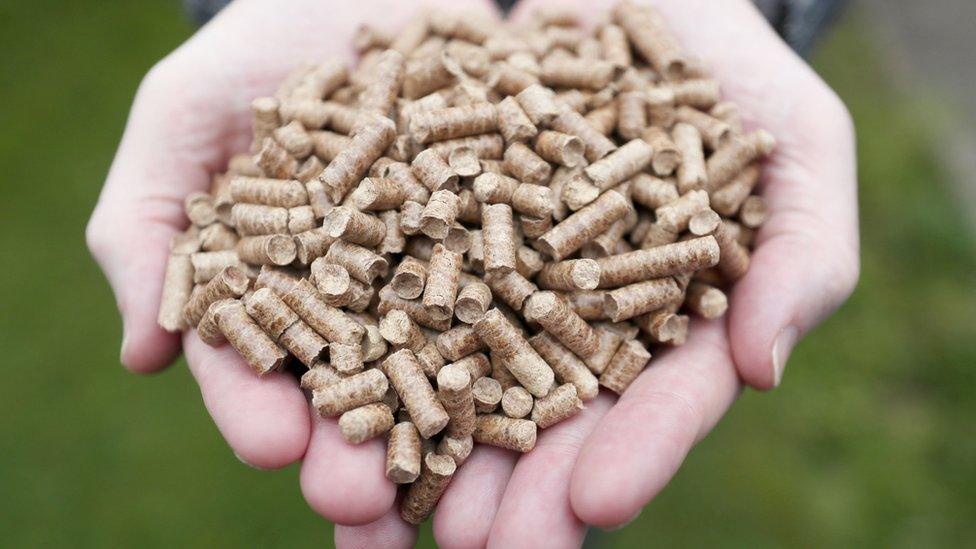
RHI claimants could effectively earn a profit by burning wood pellets in their boilers
That critical error in the scheme was that the subsidy on offer was greater than the cost of the fuel for the biomass boilers that claimants were using.
That effectively meant there was an incentive for people to burn more fuel to earn more money.
Renewable energy firms picked up on the potential for profit within days of the RHI opening in November 2012 and they marketed their boilers by encouraging potential buyers to sign up to the RHI to get "20 years of free heat".
When the penny finally dropped with civil servants, almost three years later, the colossal damage to the public purse had already been done.
Such was the "feeding frenzy" to get signed up to the scheme in its final days that boilers became seriously hot property, said an installer.
One individual was willing to pay have a boiler flown from Austria to County Fermanagh at short notice to beat the deadline.

Civil servants told companies about changes on the way
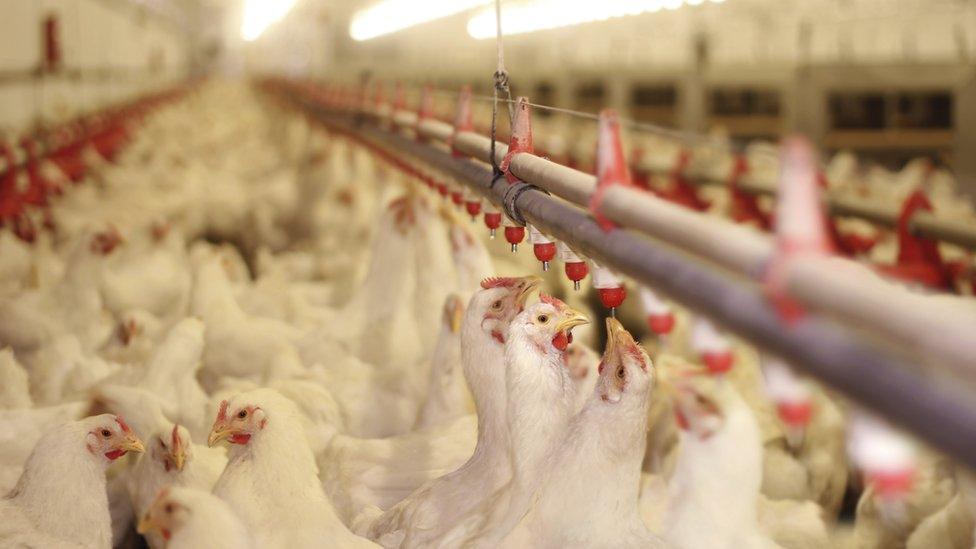
Moy Park was "actively encouraging" its farmers to sign up to the RHI, said one top executive
When the cost of the scheme began to spiral upwards, officials knew they needed to make changes to it to stem the quickening outward flow of cash.
But the two staff who were running the RHI in 2015 gave boiler installers and the poultry production giant Moy Park advance notice of their plan to cut the subsidies on offer.
The firms were able to use that information to the advantage of themselves and their clients as they urged potential claimants to get their applications in before the scheme became a lot less lucrative.
That created a sharp spike in the number of people signing up to the RHI, massively inflating the overall spend of public money.
Almost 300 poultry farmers were among those to join the scheme in the final months of 2015 and more than 60% of poultry houses in Northern Ireland that supply Moy Park are on the RHI.
The commercially-sensitive information about the impending changes was freely handed out by the officials before it had even been approved by the minister.
One of them said he felt a need to give the details as a "courtesy" to the companies but he admitted that it "looks naive now".

DUP adviser shared privileged government information with family
Dr Andrew Crawford said he was not in the habit of leaking government papers
Dr Andrew Crawford was Mrs Foster's trusted adviser during much of her time as a Stormont minister and he had a significant input in parts of the RHI.
He had legitimate access to all of the internal material related to the scheme and he twice sent confidential papers about it to his poultry farmer cousin, who is claimant on the initiative.
He insisted that it had not been his intention to give his relative an advantage but he acknowledged that "it was wrong - I shouldn't have done it".
But that was not the only time he distributed sensitive material with people outside the Stormont circle in spite of knowing that the rules prohibited it.
In one instance unrelated to the RHI, he shared a legal letter about a planning case to the son of the former DUP leader Peter Robinson in 2015.
He denied that he had a "widespread habit" of leaking government documents.

Key meetings were not recorded because the DUP and Sinn Féin were 'sensitive to criticism'
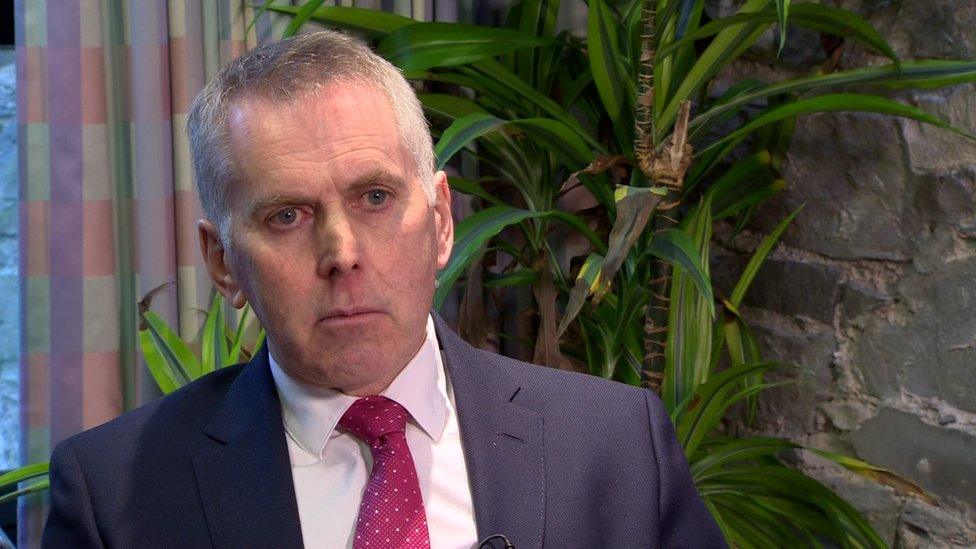
Minutes were not taken in order to frustrate freedom of information requests, said David Sterling
One of the most startling revelations was the frank admission by Northern Ireland's most senior civil servant that officials had "got into the habit" of not recording all meetings.
When the DUP and Sinn Féin shared power in the last Northern Ireland Executive they were often accused by their political rivals of governing under a cloak of secrecy.
Mr Sterling shed some light on what might - or rather might not - have been happening behind closed doors at Stormont, telling the inquiry that the two main parties were "sensitive to criticism".
Arlene Foster said she "never" demanded secrecy from officials when she was a minister
Meetings sometimes went unminuted because "ministers like to have safe space where they can... think the unthinkable and not necessarily have it all recorded".
The idea, he suggested, was that it was "safer sometimes not to have a record that might be released under freedom of information" - that meant civil servants would have been in breach of their own rules.
His claim was dismissed as "nonsense" by Mrs Foster.
- Published7 November 2017

- Published11 July 2018
